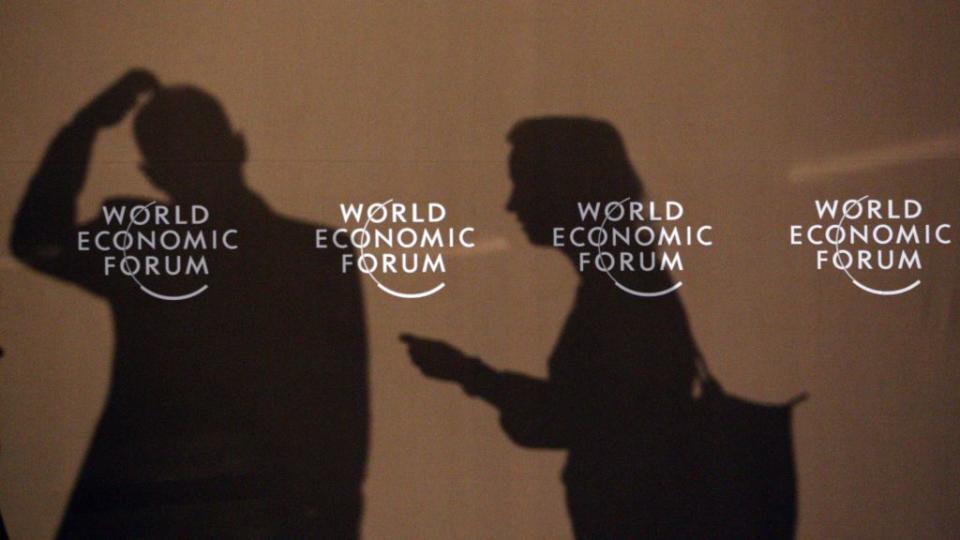The World Economic Forum’s bullish blockchain report is, naturally, quiet on bitcoin

The World Economic Forum published a report yesterday (Aug. 11) that is a ringing endorsement of blockchains, the technology underlying cryptocurrencies like bitcoin, and their potential to reshape modern finance. Predictably, however, the report failed to mention bitcoin, or ethereum, a similar digital currency that has gained huge momentum for its ability to execute smart contracts.
The report instead euphemistically refers to “distributed ledger technologies,” a reference to the fact that blockchains rely on multiple copies of transaction records, thus removing the need for a trusted, central authority. “DLT has great potential to drive simplicity and efficiency through the establishment of new financial services infrastructure and processes,” the report says.
The study, which was based on a year of research and discussions with financial institutions around the world, notes that 80% of banks are expected to start these projects in 2017 and that more than 90 central banks are currently discussing the use of the technology. What’s not mentioned is precisely which blockchains will be used. The New York Times pointed out (paywall) that the word “bitcoin” isn’t mentioned throughout the 130-page report.
An author of the report, Jesse McWaters, who leads projects around disruptive innovation in financial services at the WEF, says that’s by design. “We aren’t the ones to opine on the relative capabilities of ethereum versus bitcoin,” he said. “Ethereum isn’t mentioned, nor is Ripple, and we spoke to people working on both those protocols.”
McWaters says the report was meant to help incumbent financial institutions understand how blockchains could impact their business, while being agnostic about which blockchains, precisely, would be at work. “We decided to treat the technology as a blackbox almost, of capabilities shared over many implementations, whether it’s the bitcoin blockchain, ethereum or others,” he said. McWaters pointed to a WEF report published in 2015 (pdf) that discusses bitcoin’s potential as a payments network.
The WEF’s stance isn’t particularly surprising. While financial institutions have become enamored with the idea of blockchains–dreaming up uses for clearing and settling a variety of assets, streamlining trade finance, or even acting as an intermediary currency in international payments–they have been at pains to distance themselves from bitcoin and its kin, which have been used to transact contraband on dark net markets like the Silk Road.
Pools of funds dealing in bitcoin and ether, the currency associated with ethereum, have also been hacked for tens of millions of dollars in recent months, leading to questions over their suitability to usher in a new era of financial technology. The WEF report seems aware of this. It notes: “DLT is not a panacea; instead it should be viewed as one of many technologies that will form the foundation of next‐
generation financial services infrastructure.”

Sign up for the Quartz Daily Brief, our free daily newsletter with the world’s most important and interesting news.
More stories from Quartz:

 Yahoo Finance
Yahoo Finance 